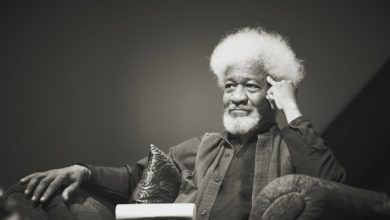Human Rights Violations in Ghana: Protesters, Including Lawyer Ama Governor, Detained Without Bail Amidst Government Criticism

Recent events in Ghana have taken a disturbing turn as the government faces growing public discontent. At the heart of these concerns is the alleged infringement of fundamental human rights and the suppression of peaceful protests. The arrest of several demonstrators, including Ama Governor, a well-known lawyer and social activist, has raised alarms over the conduct of law enforcement and the current administration’s response to citizen outcry.
The Protest: A Cry Against a Failing Government
The latest protests began as a response to economic hardships, rising corruption, and a perceived disconnect between the government and the people it serves. Citizens from all walks of life, driven by the declining quality of living, converged peacefully in cities across Ghana to demand accountability. The protest sought to address issues such as skyrocketing inflation, poor governance, unemployment, and the increasing cost of living, which many believe has reached crisis levels.
Among the notable voices of the protest was Ama Governor, a passionate advocate for human rights and social justice. Her participation symbolized the growing frustration within the legal fraternity and among young professionals in Ghana, calling out what they perceive as the state’s failure to deliver on promises of development, democracy, and economic growth.
The Arrest and Refusal of Bail
What started as a peaceful demonstration quickly escalated when the police intervened, using excessive force to disperse the crowds. Reports indicate that numerous individuals, including Ama Governor, were detained under questionable circumstances. The crackdown was swift, with many protesters accused of “unlawful assembly” and “disturbing public peace.”
Ama Governor’s case is particularly troubling, as she has been denied bail despite her legal status and the non-violent nature of the protest. Her arrest underscores the increasingly hostile environment in which dissenting voices are treated, raising questions about the rule of law and the independence of the judiciary. Legal experts in Ghana have expressed concern that the refusal of bail for a peaceful protestor, particularly a lawyer, represents a violation of her constitutional rights.
Police Brutality and Human Rights Violations
The actions of the police during the protest have drawn widespread condemnation, both locally and internationally. Eyewitnesses have reported scenes of police brutality, where protesters were beaten, tear-gassed, and unlawfully detained. The use of force against peaceful demonstrators is seen as an attempt to silence legitimate concerns of the population, further deepening the rift between the government and its citizens.
The Ghanaian Constitution guarantees the right to peaceful assembly, freedom of speech, and the right to protest. Yet, the events surrounding the arrest of Ama Governor and other innocent civilians suggest that these fundamental rights are being eroded. The police’s handling of the situation is emblematic of a growing trend in which state security forces are used to quash political dissent and intimidate those who seek to hold the government accountable.
A Growing Call for Justice
While the arrests have sparked outrage among sections of the public, there has been a notable silence from major bodies such as the Ghana Bar Association and prominent human rights organizations. This lack of an official stance from key institutions has left many questioning their role in safeguarding constitutional rights and freedoms. Citizens, legal experts, and smaller advocacy groups continue to push for justice, demanding the immediate
Conclusion: The Need for Dialogue and Respect for Human Rights
The current situation in Ghana highlights a critical moment for the country’s democracy. The arrest of peaceful protesters, including a lawyer like Ama Governor, sends a chilling message to those who dare challenge the status quo. However, it also serves as a rallying cry for greater accountability and respect for the rights of citizens.
For Ghana to maintain its democratic values, the government must engage in meaningful dialogue with its citizens, allowing peaceful protests without fear of arrest or intimidation. The role of the police should be to protect, not to silence, and the judiciary must act independently to ensure justice for all. Human rights must remain at the forefront of Ghana’s governance, lest the country risks descending into authoritarianism.
As the situation unfolds, the world watches how Ghana will respond to these accusations. One thing is clear: the arrest of Ama Governor and other innocent protestors has struck a nerve, and the call for justice cannot be ignored.
Legal Africa Magazine will continue to follow the developments of this story, advocating for human rights and rule of law across the continent.




